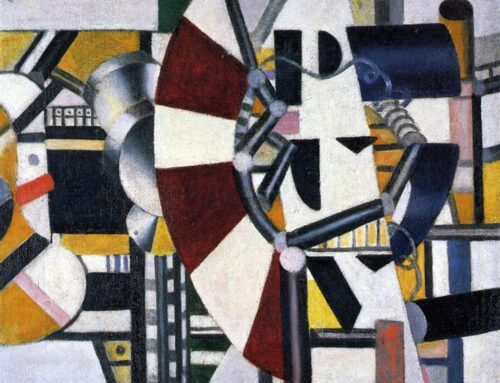The machine in isolation: can working with machines lead to social and cultural self-realization?
Fauna and flora take birth in their respective regions, but that does not make any such region belong to them. Man creates his own motherland. In the work of its creation as well as of its preservation, the people the country come into intimate relations with one another, and a country so created by them, they can love better than life itself. In our country its people are only born therein: they are taking no hand in its creation; therefore between them there are no deep-seated ties of connexion, nor is any loss sustained by the whole country felt as a personal loss by the individual. We must re-awaken the faculty of gaining the motherland by creating it. The various processes of creation need all the varied powers of man. In the exercise of these multifarious powers, along many and diverse roads, in order to reach one and the same goal, we may realise ourselves in our country. To be fruitful, such exercise of our powers must begin near home and gradually spread further and further outwards. If we are tempted to look down upon the initial stage of such activity as too small, let us remember the teaching of Gita: Swalpamasaya dharmosya travate mahato bhayat, by the least bit of dharma (truth) are we saved from immense fear. Truth is powerful, not in its dimensions, but in itself….
It may be argued that spinning [cloth] is also a creative act. But that is not so: for, by turning its wheel man merely becomes an appendage of the charkha [lit. spinning wheel], that is to say, he but does himself what a machine might have done: he converts his living energy into a dead turning movement. The machine is solitary, because being devoid of mind it is sufficient unto itself and knows nothing outside itself. Likewise alone is the man who confines himself to spinning, for the thread produced by his charkha is not for him a thread of necessary relationship with others. He has no need to think of his neighbour,—like the silkworm his activity is centred round himself. He becomes a machine, isolated, companionless. Members of Congress who spin may, while so engaged, dream of some economic paradise for their country, but the origin of their dream is elsewhere; the charkha has no spell from which such dreams may spring. But the man who is busy trying to drive out some epidemic from his village, even should he be unfortunate enough to be all alone in such endeavour, needs must concern himself with the interests of the whole village in the beginning, middle and end of his work, so that because of this very effort he cannot help realising within himself the village as a whole, and at every moment consciously rejoicing in its creation. In his work, therefore, does the striving for swaraj [self-determination] make a true beginning. When the others also come and join him, then alone can we say that the whole village is making progress towards the gain of itself which is the outcome of the creation of itself. Such gain may be called the gain of swaraj. However small the size of it may be, it is immense in its truth.
Rabindranath Tagore, “Striving for Swaraj,” 1925






Leave A Comment